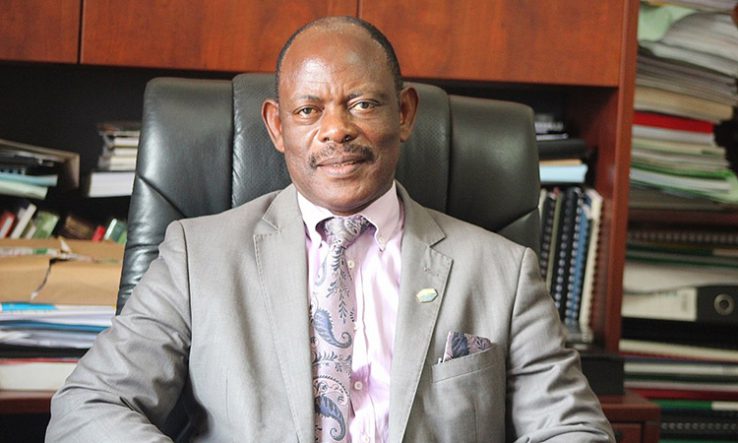
Image: Blugolobi [CC BY-SA 4.0], via Wikimedia Commons
Vice-chancellor Barnabas Nawangwe on university’s role in coronavirus response
Uganda has taken one of the strictest lines in Africa to contain the spread of the new coronavirus. The country closed its borders to passenger traffic only days after the first case had been confirmed, and after more than a month in lockdown the country has only 79 confirmed cases and not one death.
Makerere University, Uganda’s research powerhouse, has assisted the government from the start. Research Professional Africa spoke to vice-chancellor Barnabas Nawangwe about how the institution is faring and on its role in advising the government.
When did you start talking to the government about Covid-19?
We had a very good relationship with the government on health and epidemics even before this crisis. So when the government set up a national task force, which happened when Rwanda and Kenya got their first cases, half of it was made up of Makerere University staff. The ministry of health is working very closely with our college of health sciences in putting out messages and also of course giving advice.
Is any research continuing at the university?
At the start of the lockdown we identified research where if there was no continuity then the experiments would be damaged and the results spoiled. We gave special permission for people working with animals and reagents that have a lifetime. Of course, researchers who don’t need a lab are continuing without much problem, especially those who completed their field studies. But a lot of research has had to suffer a bit, and we are doing everything possible to ensure that it does not wind down completely.
Will a global economic slowdown threaten research funding?
Surprisingly, things don’t seem to have changed very much on that front. The Ugandan government is increasing staff salaries, and increasing our research funding. I hope the economy doesn’t get shocks that will make [the government] change its mind.
As for our international partners, we are getting positive signs. Norad [Norway’s international development agency] just put out a new call for proposals, so that means probably not much is going to change there. We have a growing partnership with China, and our partners in the United States are supportive. One university sent us 20,000 coronavirus test kits! Most people are saying we’re in this together, and we’ll stay together.
Has teaching ground to a halt, or has it moved online?
For undergraduates, we are at a standstill. The lockdown happened rather abruptly. All the students and staff left. Now people are spread all over the country and it’s extremely difficult to regroup virtually to see if we can resume some teaching. However, some graduate programmes are ongoing as they have strong online components already.
What is the plan for teaching, looking ahead?
We have a task force at the university working on how fast we can move to online teaching in case the lockdown continues. If the lockdown is lifted in mid-May we’ll shorten the last semester of the year as well as the recess time, and start the next academic year a week later than planned, in August. If lockdown lasts longer then perhaps we cut the semester a bit more and delay the start of next year another week. We will do everything we can to stop this academic year pushing into the next.
This interview has been edited for space and clarity.